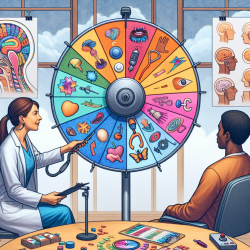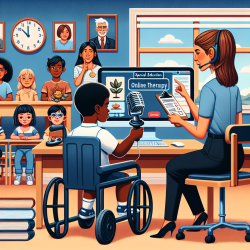At TinyEYE, we understand the importance of providing inclusive and effective healthcare. Recent research highlights the need for health professionals to improve their skills in disability-focused education. The article "Developing Disability-Focused Pre-Health and Health Professions Curricula" provides valuable insights that can help practitioners enhance their competency in this critical area.
Here are some practical steps and strategies from the research that can be implemented to improve healthcare education for people with disabilities:
1. Embrace a Holistic Approach to Disability Education
Move beyond the traditional medical model that views disability solely as an impairment. Integrate social and biopsychosocial models that consider the societal and environmental factors affecting people with disabilities (PWD). This approach fosters a more comprehensive understanding of disability and promotes empathy and respect.
2. Develop Disability-Focused Curricula
Design curricular interventions that incorporate disability studies and health humanities. This can include:
- Classroom discussions
- Case-based learning
- Lectures and panels
- Clinical simulations
These methods provide students with practical knowledge and skills to better serve PWD.
3. Use Simulated Patient Encounters
Implement simulated patient (SP) encounters with actors who have disabilities. This practice helps students gain real-world experience and develop communication and clinical skills in a controlled environment. Ensure that SPs are trained and supported to provide authentic and valuable feedback.
4. Collaborate with Disability Communities
Engage with local disability organizations and experts to co-develop and refine curricula. This collaboration ensures that the education provided is relevant and respectful of the lived experiences of PWD.
5. Evaluate and Refine
Continuously assess the effectiveness of disability-focused education through feedback from students, SPs, and disability community members. Use this feedback to make necessary adjustments and improvements.
By implementing these strategies, healthcare practitioners can significantly improve their ability to provide high-quality care to PWD. This not only enhances patient outcomes but also fosters a more inclusive and equitable healthcare system.
To read the original research paper, please follow this link: Developing Disability-Focused Pre-Health and Health Professions Curricula.










